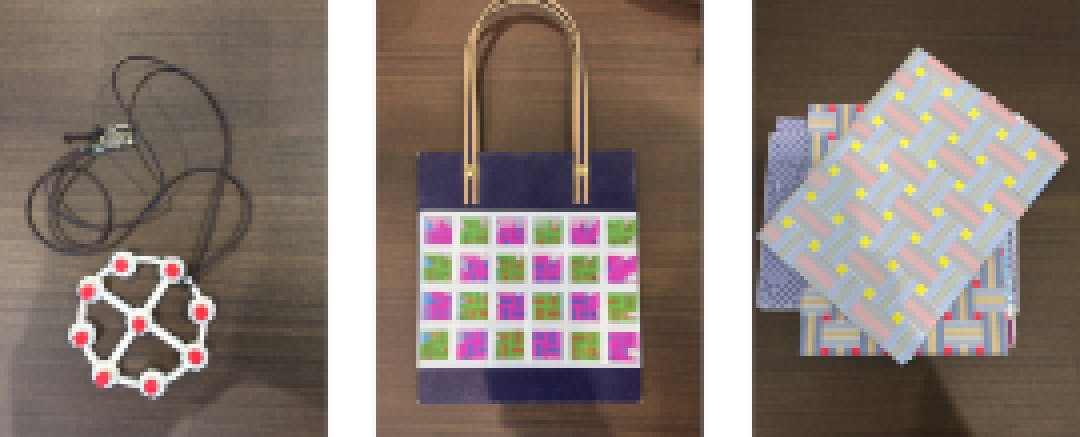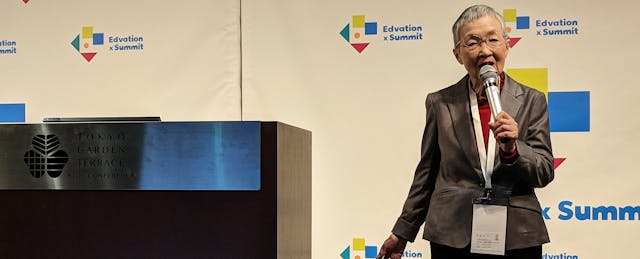“Lifelong learning” may be the latest buzzword in education. But for Masako Wakamiya, it’s much more than lip service. Three years ago, at the ripe age of 80, Wakamiya decided to learn how to code. Last year, she developed and published an app to the Apple’s app store, making her one of the oldest app developers in the world.
Now at age 83, Wakamiya beams with excitement when she recounts her journey, which has been featured in news outlets and even at Apple’s developer conference last year. But through learning how to code, she believes that experience offers an even more important lesson to today’s education and technology companies: don’t forget about senior citizens.
Today’s education technology products overwhelmingly target young people. And while there’s a growing industry around serving adult learners in higher education, companies largely neglect to consider the needs of the elderly.
“The perspective of senior citizens is that even if technology is good, it is hard to pick up and keep up with new technologies,” said Wakamiya in a speech at the Edvation x Summit this week in Tokyo.
Her experience with digital projects dates back decades. In 1999, Wakamiya helped create the website Mellow Club—described as “a group for the aged, by the aged”—and later ran a digital archive called Mellow Denshoukan which contains personal histories from seniors who lived through World War II and the post-war period.
Last year, Wakamiya, who is a former banker, released the app Hinadan, a Japanese doll game designed for senior iPhone users. Since then, she’s 3-D printed pendants, designed geometric patterns for clothing and gift wrap, and even programmed a handbag that lights up with LEDs.

Learning to code hasn’t been an easy process for Wakamiya. But she believes the education technology industry can and must better serve elders like her who are not only curious about technology, but who are often forgotten in today’s rapidly changing society.
“We used to talk about gender discrimination and race discrimination, and now they talk about age discrimination,” said Wakamiya. “You may think I am a crazy old woman, but I am going to take on new challenges, and if I need to learn something, I will. I don’t have much time left in this lifetime, so I am going to fully enjoy the rest of my time here.”
EdSurge spoke with Wakamiya to hear more of her ideas on how edtech can better reach aging generations. The following interview was translated from Japanese to English and has been lightly edited for clarity.
EdSurge: When did you decide you wanted to learn how to code?
Wakamiya: I am part of a nonprofit organization [called the Broadband School Association] that helps older people with learning how to use digital devices and computers, search using Google, this kind of stuff. I found out that it’s very hard for them to use smartphones and it’s really hard to find any apps that’s appealing to the senior generation. So that was the first area I realized I could help on.
The best way is to break down the barriers is by having more senior citizens engaged in computer technologies. My suggestion is to pick up the habit of reading e-books. E-readers and e-books are the easiest way for the senior generation to get introduced to technology. You can read anything you want on these devices.
What was the most difficult thing when you first got started?
Two things: One, programming instructions are all in English. If you have any questions, you have to talk to the Apple people but that’s mostly in English as well. I was born in the World War II era, and I was discouraged to use any English words or expressions, so I had a hard time to adjust and try to dive into an English world.
Second, I learned the coding language [Swift] but didn’t know how to make an application work. Even once I could code, it was hard to turn code into a useable application.
For other adults or senior citizens who want to learn how to code, but are intimidated by technology, what advice would you give them?
Just do it. When you’re talking about programming, it’s a wide range of things and there are a lot of languages to choose from to begin with. So start by thinking about something you want to make. For me it was the [light-up] handbag. But it’s not only about programming; rather, you have to think about what you want to make first, then think about how you can make it.
In my case, I also wanted to make an iPhone app, so I learned Swift. But Swift language only works on certain environments and you have to know these things before you start.

What could education technology companies do to better support senior citizens?
Make educational materials, but get senior citizens’ opinions on them. Usually these materials are made by and for a younger generation, which are not always suitable for senior citizens. So make something meaningful and enjoyable for seniors citizens, that’s the easiest way.
It’s probably also helpful to make educational materials that allow seniors to explore and experiment by themselves. So for example, teach them how to splice batteries, then try to light something up with batteries, and then from there make something like the handbag. So you explore from the battery to the handbag.
Also, if senior citizens can also visit vocational schools or technology high schools once in a while to get hands-on experience, that would be really interesting.
Senior citizens learned one way in school with teachers. So if you can guide them through educational materials, that would be really helpful. Kids and students today are learning how to teach themselves, more so than previous generations. If you can implement that style with the senior generation, that would be quite promising.
What does the technology industry need to do to begin to fix issues around age discrimination?
It’s really hard to connect or build networks across generations, especially in Japan. Generations are very closed off, and it’s hard for people to reach out and exchange opinions across different generations. If there was a way to facilitate that, like studying together or doing other activities together, that would be helpful as well.
Also, if the tech industry can help seniors use cell phones, AI speakers and digital devices in any capacity, that would be helpful too. It can be hard for some seniors to go out because of physical disabilities, but there are video communication tools like Skype can be an easy starting point.

What is one of the most important lessons the education industry should learn from its recent history?
You can’t study or learn unless it’s fun. You eventually quit if it’s not fun. But once you’re motivated, you’ll keep doing it. If you can create more educational materials in any form that are more fun, that would be helpful.
Motivation can come from different parts of life, like family or friends, but you have to also motivate yourself by exposing yourself to fun activities through learning. There hasn’t been enough of that.
You made an app, a handbag, and much more already. What are you going to make next?
Whenever I find something interesting or I need something, that’s how I become inspired to create.


